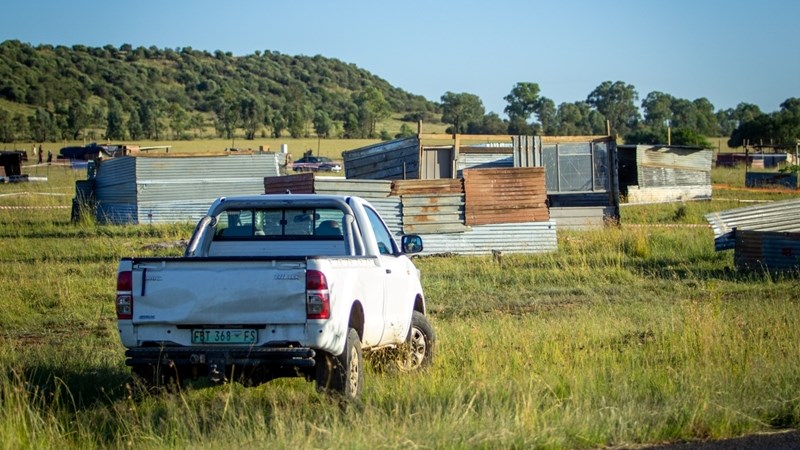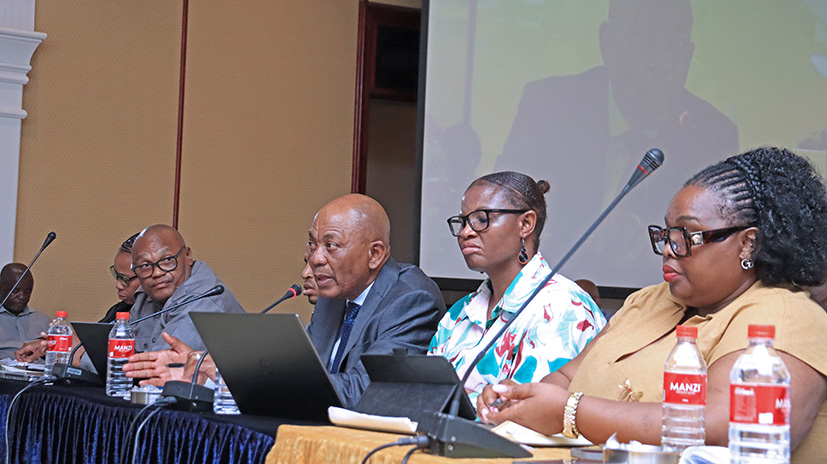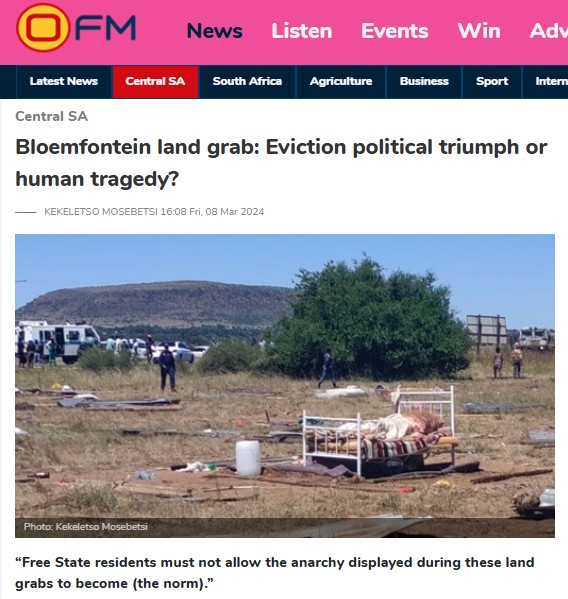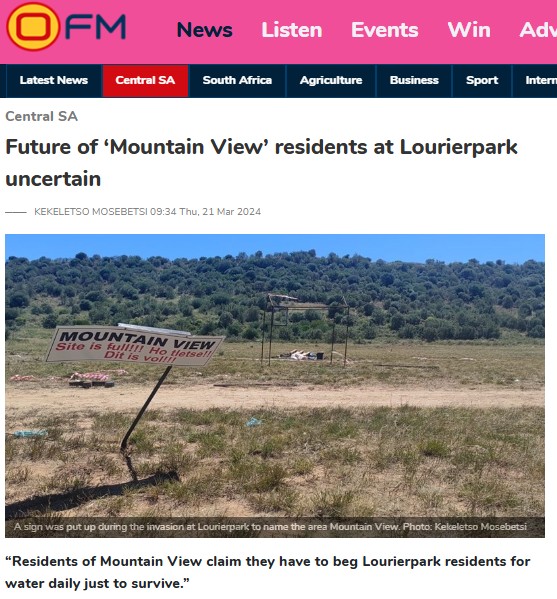South Africa
Mangaung: ‘We’re bringing more people to Lourier Park – Legally’─── KEKELETSO MOSEBETSI 14:06 Wed, 15 Oct 2025

Mangaung Metro has taken a firm stance on its plans to relocate more people to Lourier Park and closer to the city, with systems reportedly in place to prevent conflict and displacement.
Mayor Gregory Nthatisi outlined the city’s response to the growing housing crisis, defending his administration’s decision to expand legal land occupation in Lourier Park. Last year, land near Lourier Park – renamed Mountain View by land occupiers – became a flashpoint in the Free State’s ongoing housing crisis.
Thousands of people in desperate need of land took up residence, leading to legal interventions and a court-ordered eviction.
The DA, through a successful urgent application in the Bloemfontein High Court, compelled the metro to remove what it called illegal land invaders.

Mangaung Mayor Gregory Nthatisi and metro officials appeared before members of the Free State Legislature. Photo: Facebook
Then DA Ward 18 Cllr Dave McKay, now an MPL, welcomed the evictions, stating the move was necessary to uphold the rule of law. The aftermath, however, was families left distressed and homeless, and communities fractured.
In his address to the legislature, Nthatisi was unapologetic about the city’s new direction. “The business of Lourier Park, where white folks stood in front of us, chased people away and made themselves difficult …
“Interestingly, some of the members present here today were councillors at the time and played a leading role in turning communities against one another. We are not going to allow that,” he said.
The metro is pursuing legal mechanisms to ensure residents in need of housing are brought closer to the city, especially where they work, Nthatisi said. “We are looking at all the nuts and bolts of the law to ensure that nobody stands before us when we take people into those localities.
“I want to tell this committee that I’m not going to remove those people who stay in Lourier Park because the law says when you remove them, you must take them somewhere and I don’t have somewhere.
“Instead of taking those people away from there I literally am taking more people there. We can’t allow a situation where our people are not allowed to come closer to localities where they are closer to work.”
He accused opponents like McKay of wanting to keep low-income workers distant from economic centres, despite the essential services they provide to urban communities.
“These people come there – they wash their children, cook for them, do everything – but they don’t seem concerned about where those people go once they leave their doorstep.”
The metro has 79,000 residents in need of housing, including 35,000 in Bloemfontein, 18,000 in Botshabelo, and 12,000 in Thaba Nchu. To address this, the city is exploring a variety of solutions.
“We are looking at all housing typologies,” the mayor said, including converting vacant buildings owned by state entities such as Spoornet and Postnet into residential units. “The metro is in negotiations with the provincial government to repurpose disused buildings into affordable rental units.
“We want to create homes where people can pay rent, so that the municipality is sustained and people are properly housed.”
Lourier Park is just one part of a larger strategy, Nthatisi said. “We are not going to address 2,500 units that are in Lourier Park and then we stop. We want to address a substantial number of those who have (proof of township occupation) and have a place where they can start their homes, and not be moving from one spot to another.”
He warned against pitting informal settlements against each other, stressing that the metro must handle relocations with balance to avoid unrest. But his administration will not back down from efforts to address the housing backlog even if that means clashing with others.
Nthatisi also described the daily struggles of working-class residents who live far from their jobs, insisting that the metro is working around the clock to ensure they are closer to where they work in future.
“My mother, your sister, my uncle from Botshabelo in M Section, uses three to four transports to arrive at either Lourier Park or Fichardt Park. What time did they wake up in the morning? Let’s say 04:00. By 08:00, they should have started work. What time did they reach back home?
“That is why we have so many nyaope (drug) problems and so many children that are not taken care of, because their parents are never close to them. They are working far from their places of living (sic).”
• Have a news tip to share? Phone or whatsapp the OFM News Hotline: 066 487 1427.

















